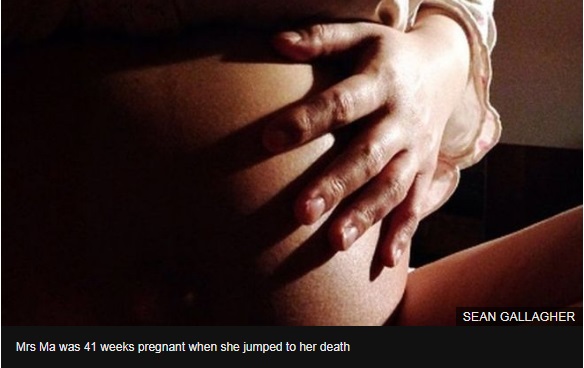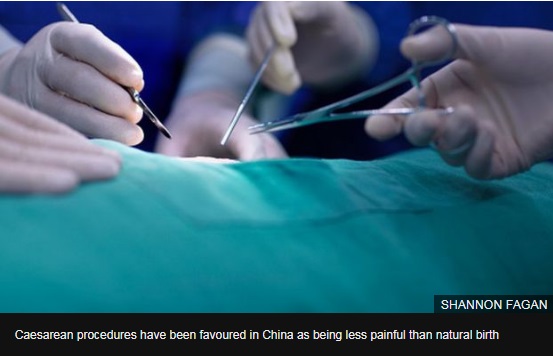
Chinese social media users are reacting with shock and horror after a heavily pregnant woman killed herself, reportedly after her family refused to let her have a caesarean section.
The 26-year-old woman, surnamed Ma, jumped from a hospital window in northern Shaanxi province on 31 August. The child she was carrying was also killed.
Huo Junwei, a doctor at the Yulin Number One hospital, told China Economic Daily that Ms Ma "left the ward twice and told her family that the pain was unbearable, and that she wanted a caesarean section, but the family were not willing to allow the procedure."
Her husband, surnamed Yan, denies this, telling Beijing Youth Daily that "we did not disagree to a caesarean".
A statement from the hospital says Ms Ma was 41 weeks pregnant, and that doctors had decided that "the large foetal head circumference meant that vaginal delivery would have been very risky".
The hospital says that when medical staff sought the family's opinion, "the family said they understood, but refused the surgery, and wanted to keep the situation under observation." The hospital statement does not elaborate on the family members' relationship to Ms Ma.
Mr Yan confirmed that his wife had left the ward twice in pain. He said the situation had made him anxious and that he had asked the doctor to find someone "familiar with caesarean procedures".
He said that by the time he got off the phone, his wife had disappeared. "Knowing my wife's character, I did not think she would have had such a strong reaction," he told Beijing Youth Daily.

Caesarean sections used to be favoured in China and were seen as a more advanced and less painful way of delivering a child. But the abolition of the one-child policy in October 2015 has changed this.
The state and the media are now actively encouraging parents to try for a second child, and women are being advised to think twice about having the procedure.
"Women need to consider that if they choose C-sections for their first birth, it could affect their second pregnancy," Mao Qun'an, from the official National Health and Family Planning Commission, told the Financial Times in 2016.
Caesarean procedures carry a slightly higher risk than natural births, and can cause a ruptured uterus, or a low-lying placenta, both of which risk causing complications for future pregnancies.

